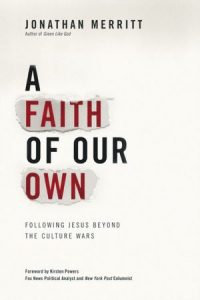 The first President I remember is Bill Clinton. To be more specific: Bill Clinton’s second term. I’ve heard spectacles of the House Republican takeover in 1994 and stories of the Clinton v. Gingrich era but my first concrete memories of a President exist from 1996-2000.
The first President I remember is Bill Clinton. To be more specific: Bill Clinton’s second term. I’ve heard spectacles of the House Republican takeover in 1994 and stories of the Clinton v. Gingrich era but my first concrete memories of a President exist from 1996-2000.
Driving to the airport a few months back Tony Campolo told me the story of Clinton’s near healthcare triumph. In 1997 & 1998, Clinton and Gingrich met frequently in an effort to reform the healthcare system. The goal was simple: a bi-partisan crafted piece of legislation agreeable by both parties. The legislation was in its final stages of review when a story bigger than bi-partisan healthcare reform broke, the Monica Lewinsky scandal. The two sides never met again.
My gut reaction was to call Campolo on his bluff. A conversation between a staunch Democrat and a staunch Republican, while each held two of the most powerful offices, if not the two most powerful offices, in the land seemed implausible. Add to that implausible conversation the subject of healthcare and it was borderline ridiculous. For someone like me, who has only known politics in the form of partisan hatred, this recollection was simply another grand example of Campolo remembering “big.”
But Campolo wasn’t remembering “big” and Jonathan Merritt can serve as a witness. In Merritt’s new book, A Faith of Our Own, he traces the development of culture warring Christians in the realm of partisan politics. To my surprise, there was an era when civility and politics could be used in the same sentence. Whether it is Jerry Falwell, Billy Graham or his own father, former Southern Baptist Convention President James Merritt, Jonathan Merritt details the spread of Christianity into politics or rather the molding of partisan politics into the pulpit.
But Merritt doesn’t leave the reader there. He is much too hopeful for that. Instead, Merritt illuminates the beauty of a new generation’s role in the church and politics: a generation in which he is an essential prophet, proclaiming an indispensable anthem. Rather than further the bitter message of a previous generation of culture warriors, Merritt charges today’s generation to a new standard of civility and engagement best summed up in a paragraph from his new book:
“Christians must be faithful not just within our churches, but throughout all spheres of life. Good Christians are good citizens, and as such, they should establish a faithful presence in the public square as in media, business, science, education, and the arts. The question isn’t, “Should Christians be involved in politics?” but rather, “How should Christians engage politics?”
As Jonathan Merritt illustrates beautifully, people are reacting, not necessarily to the church, but to the culture-warring mentality that pervades the church.
Merritt’s book is rich in information and muse. His phrases are crisp and specific, leaving the reader with much to process and debate. It’s an ideal book for the politically engaged Christian community whose members are wrestling with how to engage a new generation of Christ followers within the political square.
Put simply, A Faith of Our Own is primed for anyone disgusted, curious, confused and even content with the current culture warring in our society. Merritt’s words do not return void.

